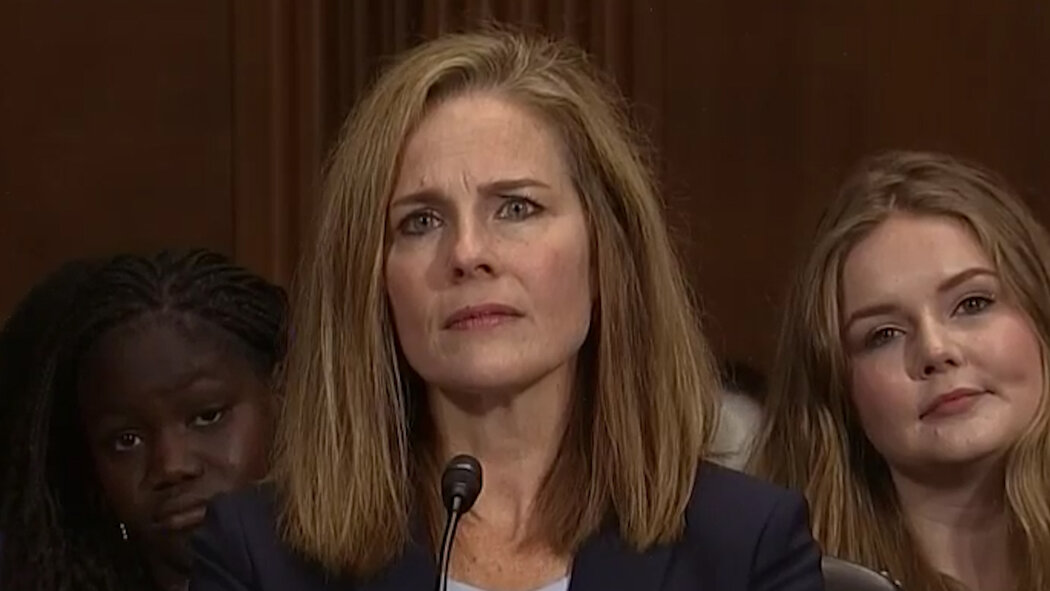News
Published
3 hours ago
on
June 28, 2024

Conservative Justice Amy Coney Barrett slammed the Supreme Court for making “textual backflips” in justifying its ruling to limit the prosecution of January 6 rioters for obstruction.
Friday morning, the Court issued its ruling in Fischer v. United States, which rules that the law against the obstruction of official proceedings applies to only those rioters who “impaired the availability or integrity for use in an official proceeding of records, documents, objects, or other things used in an official proceeding, or attempted to do so,” according to Chief Justice John Roberts’ ruling.
The ruling was 6-3, but not along ideological lines. The conservative justices other than Barrett were joined by liberal Justice Ketanji Brown Jackson, while Barrett wrote the dissent, and was joined by the other two liberal justices, Sonia Sotomayor and Elena Kagan.
READ MORE: Trump Falsely Says Mike Pence Is to ‘Blame’ for Violence on January 6
“As the Solicitor General acknowledged at oral argument, under the Government’s interpretation, a peaceful protester could conceivably be charged… and face a 20-year sentence,” Roberts wrote. “And the Government would likewise have no apparent obstacle to prosecuting… any lobbying activity that ‘influences’ an official proceeding and is undertaken ‘corruptly.’
Jackson concurred, but in her opinion she wrote that she agreed with the ruling based on the law, but was unconvinced that it necessarily applied to many January 6 defendants. She said that would be up to lower courts to decide.
“Joseph Fischer was charged with… corruptly obstructing ‘a proceeding before Congress, specifically, Congress’s certification of the Electoral College vote,” she wrote. “That official proceeding plainly used certain records, documents, or objects—including, among others, those relating to the electoral votes themselves.”
Barrett’s dissent argued that the congressional joint session to go over the electoral votes was obviously an “official proceeding,” and tried to force an end to said proceeding.
“Fischer’s alleged conduct (which includes trespassing and a physical confrontation with law enforcement) was part of a successful effort to forcibly halt the certification of the election results. Given these premises, the case that Fischer can be tried for ‘obstructing, influencing, or impeding an official proceeding’ seems open and shut. So why does the Court hold otherwise?” Barrett asked.
“Because it simply cannot believe that Congress meant what it said. Section 1512(c)(2) is a very broad provision, and admittedly, events like January 6th were not its target. (Who could blame Congress for that failure of imagination?) But statutes often go further than the problem that inspired them, and under the rules of statutory interpretation, we stick to the text anyway. The Court, abandoning that approach, does textual backflips to find some way—any way—to narrow the reach of subsection (c)(2). I respectfully dissent.”
Attorney General Merrick Garland also condemned the ruling in a statement, calling January 6 an “unprecedented attack on the cornerstone” of government. Garland added that the ruling would not affect the “vast majority” of January 6 defendants.
Similarly, special council Jack Smith, said that Friday’s ruling will not affect the election interference case against former President Donald Trump, according to the Associated Press. The ruling will affect approximately half of the 50 defendants still serving out their sentences for their roles in the January 6 riots, the AP reported.

